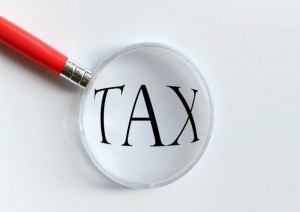It’s tax time and the mails are full of IRS form 1099.
If you managed a short sale of your property; suffered a foreclosure; filed bankruptcy; or settled your debt for less than you owed, you probably got a 1099.
But that’s not the end of the tax story.
Receipt of the form does not mean that you must include the reported sum as income.
Please repeat:
mere receipt of the form does not mean you are necessarily paying taxes on that money.
Form 1099 is an informational form. It is sent out routinely and without much thought on the creditor’s part.
When real property changes hands or when a debt is forgiven, the creditor involved is required to report the transaction to the IRS. You, the potentially affected taxpayer, get a copy.
Here’s the action plan to avoid paying more tax.
Claim the exceptions to the rule
The Internal Revenue Code starts with the proposition that debts that are forgiven increase your net worth. In IRS-think, there must be a tax due.
But there are exceptions. The three most important exceptions for my clients:
- Bankruptcy
- Insolvency
- Qualified mortgage indebtedness
Fit in one of these exceptions and the cancelled debt does not get added to your taxable income.
To establish your right to exclude the money shown on the 1099, you have to file IRS form 982.
If you don’t file the form and claim the exception, the IRS has no way to know that, despite the debt forgiveness, there is no tax payable.
Form 982 tax-avoiding choices
Form 982 lays out the possible reasons forgiven debt might not be taxable.
Bankruptcy– A discharge in bankruptcy forgives the debt without tax consequences. It’s the first exception found on Form 982. Bankruptcy law is found in Title 11 of the United States Code. The tax exception applies to the discharge of debt in any chapter of bankruptcy.
Insolvency– Perhaps,when the debt in question was forgiven, you still owed more to other creditors than the value of your assets. You don’t have to include the forgiven debt in your income. You were insolvent. Note, however, that the solvency calculation here includes the value of retirement assets that your creditors can’t reach. Many people who have little net worth outside of retirement savings are actually solvent when you add in pensions, etc.
In case of mistake
Another situation where you might get a 1099 but not owe tax is where you had no personal liability for the debt; that is, the debt forgiven was a non recourse debt. The foreclosure agent probably has no way to know whether the lender had a right to sue you.
When your debt wasn’t really cancelled
If none of the other exceptions to inclusion in income apply, make sure you consider whether you had personal liability for the debt. If not, seek to have the 1099 corrected, or attach an explanation to your tax return with the facts of your situation.
Remember, just because they sent you the form doesn’t mean you owe the tax.
More on tax return issues
Mortgage interest missing from Form 1098
Tax deductions hidden in Chapter 13
Are you insolvent for cancellation of debt purposes
Consequences of unfiled returns
Image courtesy of IRS EIN







